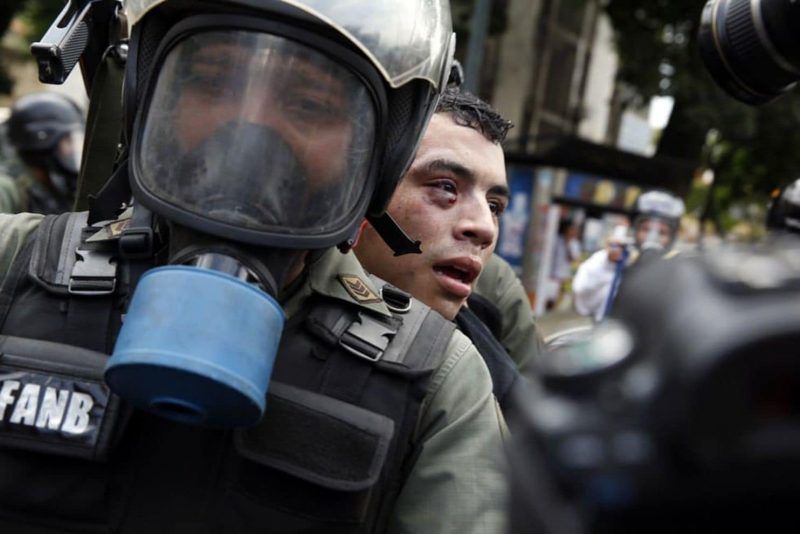
Efraín Ortega, a 42-year-old with a college degree in administration and computer science, was unlawfully detained in Caracas on July 24, 2014. He was tortured and beaten, his body taped with cardboard and newspapers to avoid leaving marks. He was later handcuffed with his arms behind his back and hung until his shoulders gave up. He was finally released on Oct. 6, 2017, after his preliminary hearing was postponed 20 times.
Ortega’s harrowing story is included in report released last week by the Organization of American States, which had appointed a panel of independent international experts to establish whether the government of Venezuelan President Nicolás Maduro had committed crimes against humanity while repressing multiple protests from 2014 to 2017.
Reading the nearly-400-page report is psychologically and emotionally exhausting. Manuel Ventura Robles, a former judge of the Inter-American Court of Human Rights and a member of the panel, said while presenting the report: “Frankly, I’ve never been as morally affected as I have by the cases of torture we have found”.
The O.A.S. reached a definite conclusion: There is more than enough proof to presume that crimes against humanity have been committed in Venezuela and — most importantly — that action must be taken. Rape, murder, illegal detention, among other crimes, show the systematic repression of a regime that aims to spread fear in the civilian population.
I led many protests as a member of the city council of Chacao, one of the five municipalities of Caracas. Every day I feared being caught and being tortured. Members of the security forces chased me and other protesters down the streets, and we were saved by good Samaritans who opened their homes to let us hide inside.
I will never forget the shrieks of pain I heard at a medical center from the mother of Juan Pablo Pernalete, after she was told that her son had been killed by a tear-gas canister shot at point-blank range directly into his chest. Through the shock and pain we all felt, I could see doctors and nurses crying and fellow protester shouting angry insults against the regime.
One witness account in the report is given by Reny Elías, a 35-year-old who was arrested at his home after an illegal raid without a warrant. He describes “officers choosing one young man, pulling down his pants in front of the other detainees, putting teargas powder and water in his anus, and penetrating him with a broomstick”.
Numerous accounts describe members of the police or military routinely using torture — all in an attempt to make individuals regret ever having dared to express their inalienable right to speech, to protest, to clamor for a better life.
Many people are now familiar with the tragic humanitarian crisis roiling Venezuela due to mismanagement of the economy and widespread corruption. But this report now offers proof of a targeted and repressive suffering. That’s the truth about Venezuela today: Some struggle to survive sickness and hunger, and all are terrorized through the use of state sponsored violence.
Luis Almagro, the O.A.S. secretary-general, is sending the torture report to the International Criminal Court. A regional government must sponsor the action to trigger an official investigation against the high-ranking Venezuelan officials named in the report, including Maduro, Defense Minister Vladimir Padrino López and the director of the political police (SEBIN), Gustavo González López.
The torture report further isolated the Maduro regime. Wednesday’s O.A.S. General Assembly approval of a resolution denouncing the sham elections of May 20, with even past allies turning against the regime, was another step in the right direction to keep international pressure. But Venezuela will not be free until the democratic ordered is restored and those responsible for human rights abuses are brought to justice.
Diego Scharifker is a former city council member and student leader from Caracas, Venezuela.
